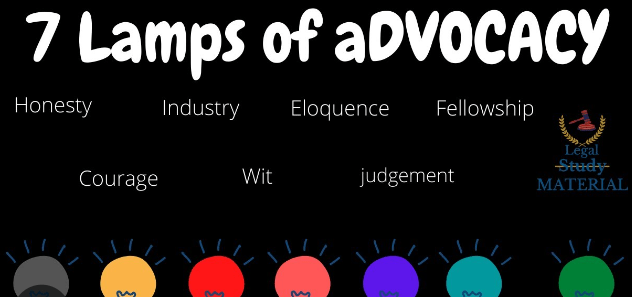Zero-Waste Living: Practical Steps to Reduce Your Environmental Impact
In a world grappling with environmental challenges, adopting a zero-waste lifestyle has emerged as a powerful way for individuals to make a positive impact. Moreover, By minimizing waste and reducing our ecological footprint, we can contribute to a more sustainable future. This article outlines practical steps you can take to embark on your zero-waste journey. Additionally, Embrace a sustainable lifestyle with Zero-Waste Living. Discover eco-friendly, reusable products for a greener, more conscious way of living. Start your journey towards a sustainable future today!
Understanding Zero-Waste Living
What is Zero-Waste Living?
Zero-waste living is a lifestyle focused on minimizing waste generation and promoting sustainability. Moreover, It involves a conscious effort to reduce, reuse, and recycle, with the ultimate goal of sending as little as possible to landfills.

Why Adopt a Zero-Waste Living Lifestyle?
- Environmental Conservation: Moreover, Reducing waste helps conserve natural resources, reduce pollution, and combat climate change.
- Financial Savings: By buying less and making conscious choices, you can save money in the long run.
- Health Benefits: Moreover, Zero-waste living often encourages healthier habits like eating fresh, unprocessed foods and using natural products.
Practical Steps Towards Zero-Waste Living
1. Declutter and Assess Your Possessions Towards Zero-Waste Living
Before you begin, assess your belongings and identify items that can be repurposed, donated, or recycled. Moreover, This will give you a clearer view of what you actually need.

2. Embrace the 5 R’s Towards Zero-Waste Living
- Refuse: Moreover, Say no to unnecessary single-use items like plastic straws, bags, and packaging.
- Reduce: Minimize consumption by buying only what you need and opting for quality, long-lasting products.
- Reuse: Choose reusable alternatives for items like water bottles, containers, and bags.
- Recycle: Moreover, Properly dispose of recyclable materials, but remember that recycling should be a last resort.
- Rot: Compost organic waste to enrich the soil and divert it from landfills.

3. Mindful Shopping and Packaging Towards Zero-Waste Living
- Buy in Bulk: Purchase items like grains, nuts, and cleaning supplies in bulk to reduce packaging waste.
- Choose Sustainable Packaging: Moreover, Opt for products with minimal or eco-friendly packaging.
- Shop Local and Secondhand: Support local businesses and consider buying used items whenever possible.

4. Kitchen and Food Waste Towards Zero-Waste Living
- Meal Planning: Moreover, Plan meals to avoid overbuying and wasting food.
- Composting: Establish a composting system for food scraps, which can enrich your garden soil.
- Reusable Containers and Utensils: Moreover, Carry reusable containers for takeout and your own utensils to reduce single-use plastics.

5. Personal Care and Hygiene Towards Zero-Waste Living
- DIY and Natural Products: Make your own personal care items or choose products with natural, eco-friendly ingredients.
- Reusable Alternatives: Moreover, Use reusable options for items like razors, menstrual products, and cotton swabs.

6. Transportation and Travel Towards Zero-Waste Living
- Public Transport and Carpooling: Opt for public transportation, carpooling, or cycling to reduce emissions.
- Sustainable Travel: Moreover, Choose eco-friendly accommodations and consider offsetting your carbon footprint.

7. Education and Advocacy Towards Zero-Waste Living
- Stay Informed: Keep up with environmental issues and solutions to further refine your zero-waste efforts.
- Advocate for Change: Moreover, Encourage friends, family, and your community to adopt sustainable practices.

Overcoming Common Challenges in Zero-Waste Living
1. Dealing with Non-Recyclable Items Towards Zero-Waste Living
Despite your best efforts, some items might not have clear recycling or repurposing options. Moreover, In such cases, explore local resources like specialized recycling centers or creative upcycling projects.

2. Social Situations and Peer Pressure
Navigating social events or gatherings where single-use items are prevalent can be challenging Towards Zero-Waste Living. Moreover, Carry your own reusable products alternatives and take the opportunity to share your zero-waste journey with others, inspiring them to make conscious choices too.

3. Balancing Convenience with Sustainability
In our fast-paced world, convenience often clashes with sustainability. Finding a balance requires planning and preparation. Moreover, Consider investing in high-quality, versatile items that make sustainable living more convenient.

Monitoring and Celebrating Progress
Keep track of your waste reduction progress through regular assessments. Moreover, Celebrate your achievements, no matter how small, as they contribute to a larger positive impact.
Expanding Your Impact Beyond Personal Habits
Consider engaging with your community and advocating for sustainable practices at a broader level. Join local environmental groups, participate in community clean-ups, or organize workshops on waste reduction.
Embracing Continuous Learning and Adaptation
Stay open to new ideas and technologies that can further enhance your zero-waste efforts. Moreover, Stay informed about innovations in sustainable living and be willing to adapt your practices as needed.

Conclusion: Sustaining a Zero-Waste Lifestyle
Embarking on a zero-waste journey is not about perfection, but about progress. Every step you take towards reducing waste contributes to a healthier planet. Moreover, By adopting these practical steps, overcoming challenges, and continuously learning, you can sustain a zero-waste lifestyle and inspire positive change in your community and beyond. Moreover, Remember, your efforts matter, and together, we can create a more sustainable future.
